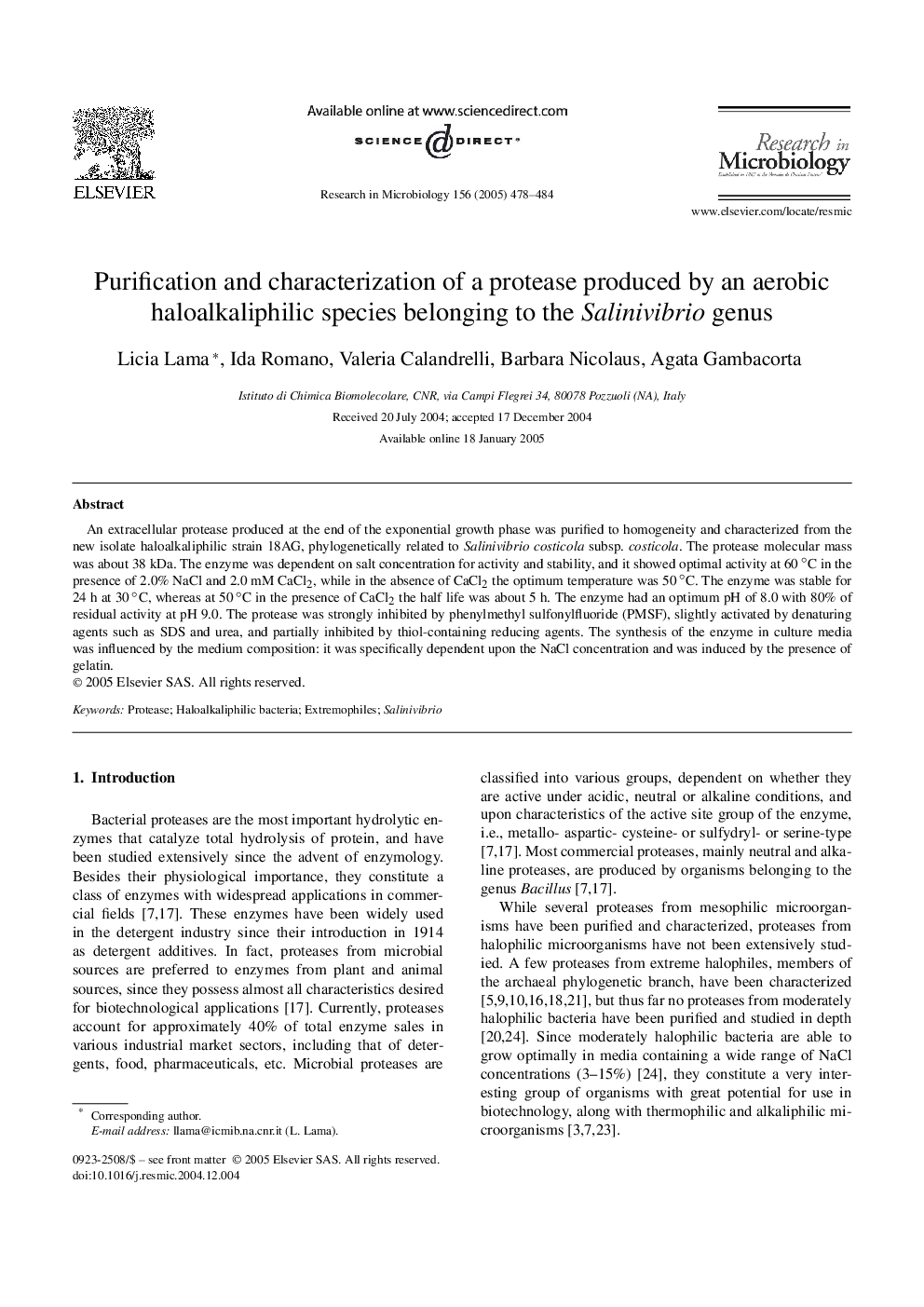| Article ID | Journal | Published Year | Pages | File Type |
|---|---|---|---|---|
| 9440142 | Research in Microbiology | 2005 | 7 Pages |
Abstract
An extracellular protease produced at the end of the exponential growth phase was purified to homogeneity and characterized from the new isolate haloalkaliphilic strain 18AG, phylogenetically related to Salinivibrio costicola subsp. costicola. The protease molecular mass was about 38 kDa. The enzyme was dependent on salt concentration for activity and stability, and it showed optimal activity at 60â°C in the presence of 2.0% NaCl and 2.0 mM CaCl2, while in the absence of CaCl2 the optimum temperature was 50â°C. The enzyme was stable for 24 h at 30â°C, whereas at 50â°C in the presence of CaCl2 the half life was about 5 h. The enzyme had an optimum pH of 8.0 with 80% of residual activity at pH 9.0. The protease was strongly inhibited by phenylmethyl sulfonylfluoride (PMSF), slightly activated by denaturing agents such as SDS and urea, and partially inhibited by thiol-containing reducing agents. The synthesis of the enzyme in culture media was influenced by the medium composition: it was specifically dependent upon the NaCl concentration and was induced by the presence of gelatin.
Related Topics
Life Sciences
Immunology and Microbiology
Applied Microbiology and Biotechnology
Authors
Licia Lama, Ida Romano, Valeria Calandrelli, Barbara Nicolaus, Agata Gambacorta,
